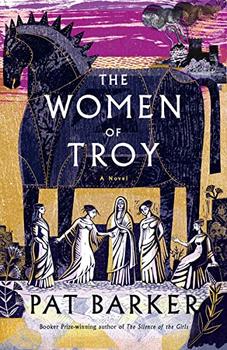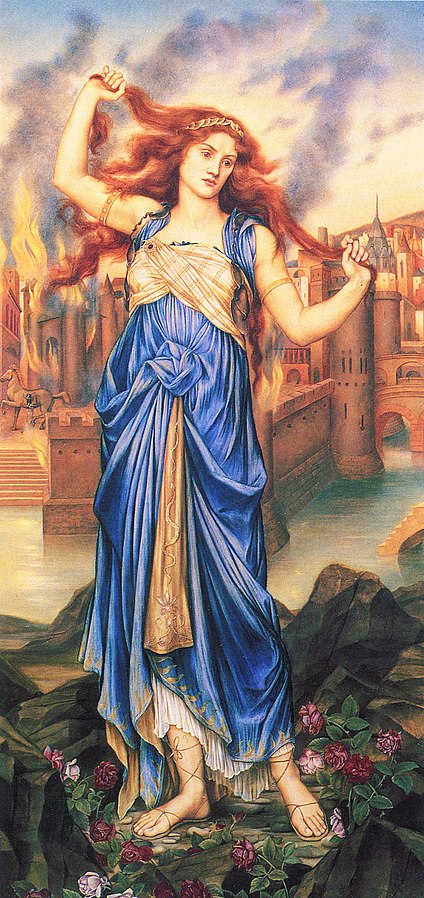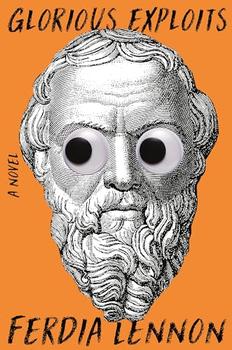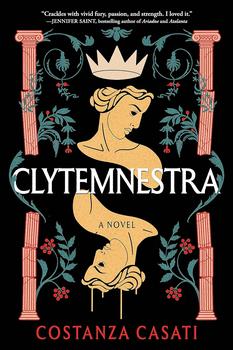Summary | Excerpt | Reading Guide | Reviews | Beyond the book | Read-Alikes | Genres & Themes | Author Bio

A daring and timely feminist retelling of The Illiad from the perspective of the women of Troy who endured it--an extraordinary follow up to The Silence of the Girls from the Booker Prize-winning author of The Regeneration Trilogy.
Troy has fallen and the victorious Greeks are eager to return home with the spoils of an endless war--including the women of Troy themselves. They await a fair wind for the Aegean.
It does not come, because the gods are offended. The body of King Priam lies unburied and desecrated, and so the victors remain in suspension, camped in the shadows of the city they destroyed as the coalition that held them together begins to unravel. Old feuds resurface and new suspicions and rivalries begin to fester.
Largely unnoticed by her captors, the one time Trojan queen Briseis, formerly Achilles's slave, now belonging to his companion Alcimus, quietly takes in these developments. She forges alliances when she can, with Priam's aged wife the defiant Hecuba and with the disgraced soothsayer Calchas, all the while shrewdly seeking her path to revenge.
1
Inside the horse's gut: heat, darkness, sweat, fear. They're crammed in, packed as tight as olives in a jar. He hates this contact with other bodies. Always has. Even clean, sweet-smelling human flesh makes him want to puke—and these men stink. It might be better if they kept still, but they don't. Each man shifts from side to side, trying to ease his shoulders into a little more space, all intertwined and wriggling like worms in a horse's shite.
Redworm.
The word sends him spiralling down; down, down, into the past, all the way back to his grandfather's house. As a boy—which is what some seem to think he still is—he used to go down to the stables every morning, running along the path between the tall hedges, breath curdling the air, every bare twig glinting in the reddish light. Turning the bend, he would see poor old Rufus standing by the gate of the first paddock—leaning on it, more like. He'd...
When it focuses on the female characters, The Women of Troy is a quiet, subtle novel. In many ways, this project exemplifies what Barker proved in The Silence of the Girls: that she isn't interested in the battlefield, but rather, the unassuming moments that follow bloodshed. Unfortunately, Briseis's narration never fully justifies itself. Still, Barker's characters are so brilliantly drawn (Pyrrhus in particular is a marvelous addition), and her writing is so sharp that The Women of Troy is a pleasure to spend time with...continued
Full Review
(689 words)
This review is available to non-members for a limited time. For full access,
become a member today.
(Reviewed by Rachel Hullett).
 Like most stories and characters from Greek mythology, the exact origin of Cassandra of Troy is unknown, though she may have first appeared as a character in the Iliad, composed around the 8th century BCE, where she is described as "the fairest of Priam's daughters" and "fair as golden Venus" (in the English translation by Samuel Butler). These are the only references to Cassandra in Homer's tale, but clearly her story developed elsewhere, as now there is a much larger mythos surrounding her character. Details of Cassandra's story vary in different sources, but the blueprint of her narrative remains generally agreed upon.
Like most stories and characters from Greek mythology, the exact origin of Cassandra of Troy is unknown, though she may have first appeared as a character in the Iliad, composed around the 8th century BCE, where she is described as "the fairest of Priam's daughters" and "fair as golden Venus" (in the English translation by Samuel Butler). These are the only references to Cassandra in Homer's tale, but clearly her story developed elsewhere, as now there is a much larger mythos surrounding her character. Details of Cassandra's story vary in different sources, but the blueprint of her narrative remains generally agreed upon.
Cassandra was the daughter of Priam and Hecuba, the king and queen of Troy during the city's invasion by the Greeks. ...
This "beyond the book" feature is available to non-members for a limited time. Join today for full access.

If you liked The Women of Troy, try these:

by Ferdia Lennon
Published 2024
An utterly original celebration of that which binds humanity across battle lines and history.

by Costanza Casati
Published 2024
Madeline Miller's Circe meets Cersei Lannister in a stunning debut following Clytemnestra, the most notorious heroine of the ancient world and the events that forged her into the legendary queen.





